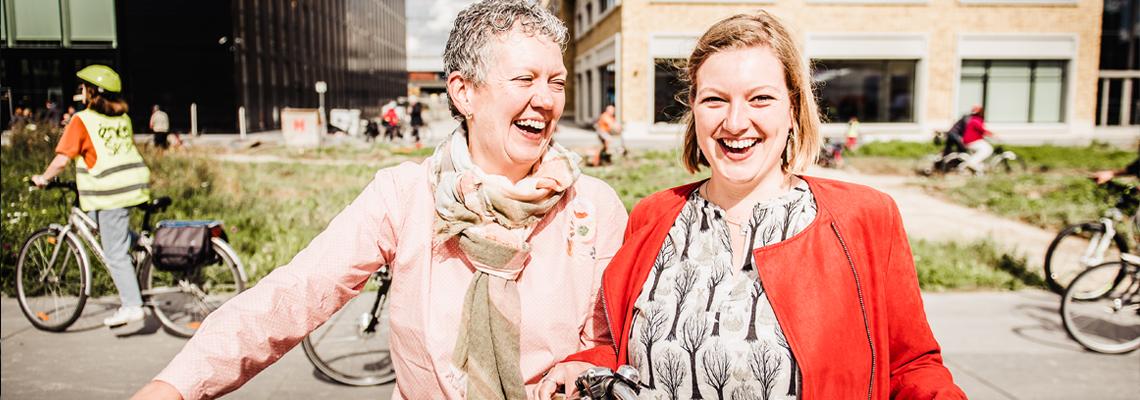
Why do men cycle more than women?
In the province of Antwerp, 1 in 3 men cycle daily, while almost 1 in 3 women rarely or never cycle.(*1) In Brussels, in 2019, 63.9% of all cyclists were male, compared to only 36.1% female.(*2) Men pedal significantly more than women. Julie Van Garsse of zij-kant explains where this inequality comes from and how we can get more women cycling.
Julie: "Women's cycling is booming, but when it comes to commuting or functional trips, the average cyclist is male, rather young and highly educated. Nevertheless, the bicycle is a stepping stone towards emancipation and independence: it allows you to move around quickly, freely and in a cheap way.
Feeling unsafe
Julie: "Women tend to feel more unsafe on their bicycle than men. This is not only due to busy traffic, but also because men dominate the public space. Women are sometimes confronted with inappropriate looks and comments. Especially in places with little social control, they are more likely to seek the safety of a car, bus or taxi."
Lighted and clean cycle routes
Julie: "It is up to policy makers to ensure that women can cycle safely. Better lighting and clean streets can take away the feeling of insecurity. Since the death of Julie Van Espen, the city of Antwerp is working on better lighting along the canal and bicycle routes are being upgraded with street art. This increases the sense of security."
"Research by Pro Velo in Brussels also shows that the feeling of insecurity is even stronger among women who never cycle. Raising awareness of the bicycle as a means of transport together with courses for beginning cyclists are equally important in order to dispel the feeling."
Trip chaining easier by car
Julie: "It is also true that women are still more occupied with the household and the family. They often make complex journeys with many stops: they take the children to school or to a day care centre, do shopping on the way to work and then pick up the children again. We call it 'trip chaining' and its less easy to manage by bike."
"Electrically powered cargo bikes can offer a solution, but they are expensive and in many places the cycling infrastructure is not adapted for them. Wider cycle paths and larger bicycle parking facilities make it easier to choose the bicycle over the car. "
Make cycling affordable
Julie: "Authorities present the bicycle as the cheaper alternative to the car. But we see that vulnerable families lack the money to invest in a bike, a helmet and a decent lock. That is why we advocate low-threshold cycling (repair) courses, a 'bicycle library' in the neighbourhood where people can hire children's bicycles cheaply, and more financial support.
Bicycle tour with a feminine touch in Antwerp
Julie: "To get women and girls in Antwerp more excited about cycling, we organised a cycling tour on Sunday 12 September. The tour went along streets with names of remarkable ladies and past street art by female artists. It's a way of showing that women also belong in the public space!"
(1) Figures from De Grote Fietsenquête, conducted by iVOX on behalf of the Province of Antwerp (18/12/2018).
(2) From the fietsenquête of Pro Velo Brussels